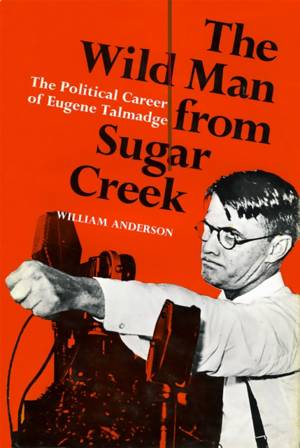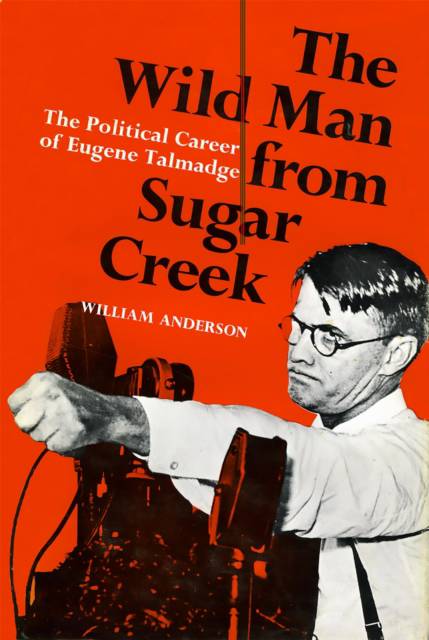
Je cadeautjes zeker op tijd in huis hebben voor de feestdagen? Kom langs in onze winkels en vind het perfecte geschenk!
- Afhalen na 1 uur in een winkel met voorraad
- Gratis thuislevering in België vanaf € 30
- Ruim aanbod met 7 miljoen producten
Je cadeautjes zeker op tijd in huis hebben voor de feestdagen? Kom langs in onze winkels en vind het perfecte geschenk!
- Afhalen na 1 uur in een winkel met voorraad
- Gratis thuislevering in België vanaf € 30
- Ruim aanbod met 7 miljoen producten
Zoeken
The Wild Man from Sugar Creek
The Political Career of Eugene Talmadge
William Anderson
Paperback | Engels
€ 45,95
+ 91 punten
Omschrijving
Eugene Talmadge's career as a politician lasted twenty years, and during that time he dominated Georgia's political structure as few men have in any state's history. The Wild Man from Sugar Creek is a fascinating biography of one of the South's most colorful political figures. It is also a revealing analysis of the Georgia mind in the 1930s, reminiscent in its sociological reflections of Cash's Mind of the South.
A product of "Old South" thinking, Talmadge was elected governor of Georgia four times. His significance lay in his total commitment to fighting the liberalization of the southern mind and the quickening demise of the South's traditional culture. He saw Roosevelt's New Deal as the culprit, and he fought desperately against the rise of big government. "He was," says William Anderson, "the champion of the mythical little man, of the have-nots, the dejected, the mentally awash, the orphans of rural life propelled by the depression to the doorsteps of the city, alone, uncertain, afraid." The Wild Man from Sugar Creek is based in large part on interviews with living contemporaries of Talmadge, so that the book's central character comes alive in much the same way that Huey Long does in T. Harry Williams' prize-winning biography of the Louisiana political figure. The first full biography of Talmadge, The Wild Man from Sugar Creek captures the monumental changes in the southern mind during the tumultuous 1930s, and recreates the struggle between a fiercely independent politician and the rush of change in a conservative land. "The poor dirt farmer ain't got but three friends on this earth: God Almighty, Sears Roebuck and Gene Talmadge." --Eugene TalmadgeSpecificaties
Betrokkenen
- Auteur(s):
- Uitgeverij:
Inhoud
- Aantal bladzijden:
- 304
- Taal:
- Engels
Eigenschappen
- Productcode (EAN):
- 9780807101704
- Verschijningsdatum:
- 1/01/1976
- Uitvoering:
- Paperback
- Formaat:
- Trade paperback (VS)
- Afmetingen:
- 156 mm x 231 mm
- Gewicht:
- 458 g

Alleen bij Standaard Boekhandel
+ 91 punten op je klantenkaart van Standaard Boekhandel
Beoordelingen
We publiceren alleen reviews die voldoen aan de voorwaarden voor reviews. Bekijk onze voorwaarden voor reviews.









